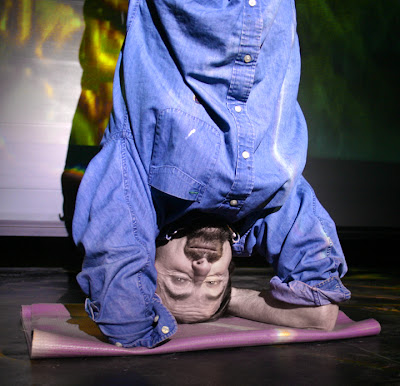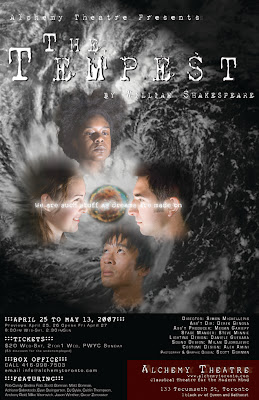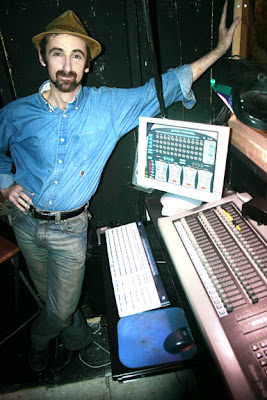 1) What the fuck is going on?
1) What the fuck is going on?
Self-knowledge is elusive.
2) How do you feel about your time at the University of Toronto’s Drama Program?
I came to theatre late at age 26. Having gone through U of T for pure math it was fairly easy for me to return and get a spot in the UC program. Were it not for the U of T program it would have been much more difficult for me to get a spot in another theatre program as quickly as I did. Thus, I’m very grateful for my time at U of T. While it is not a full conservatory program, it benefits from drawing from the pool of students at U of T who tend to be motivated and high achieving, and I appreciate the self-reliance the program instills in its graduates.
 3) Why Shakespeare?
3) Why Shakespeare?
My parents had both passed on early, and working on Shakespeare grounded me in a sense of something enduring and stable. My background in pure math is an advantage in deciphering some of the more logically complex rhetoric in the plays. And I guess I’m just anal retentive enough to be a good organizer and scheduler, which is very important in rehearsing a Shakespeare play.
P.S. It’s been said that Shakespeare is the heroin of theatre: Once you go Shakespeare, it’s tough to go back.
4) What do you like about The Tempest?
The same thing that I like about every Shakespeare play . . . everything.
 5) Any tips or tricks for people who normally have trouble understanding the language used in Shakespeare?
5) Any tips or tricks for people who normally have trouble understanding the language used in Shakespeare?
See an Alchemy show.
6) What strategies do you use to reach out to audiences that don’t regularly go to classical theatre?
Marketing is an art form in and of itself and we’re only now starting to figure this out.
I think a modern audience is increasingly electronically and visually oriented and we’re endeavouring to move towards web-based marketing, and also substantially raising the visual qualities of our shows.
We also feel it’s essential that the text be 100% clear. No audience likes feeling dumb.
7) What do you count among Alchemy Theatre’s greatest assets?
We take a very specific approach to the text, which provides clarity for the both the audience but also for ourselves in our choices in rehearsal.
We maintain a no-bullshit, mutually respectful working envirornment. Punctuality and professional are mandatory. Everyone is held accountable, and we have little patience with any passive aggressive behaviour or artistic vanity/diva-ism.
Having our own venue is invaluable (albeit a lot of work!). It provides us flexability and security in scheduling our shows, and allows us to rehearse in our performance space, which provides a big help in moving into tech week and production.
 8) Do you have any unifying theories about the artist-critic relationship?
8) Do you have any unifying theories about the artist-critic relationship?
The critic provides valuable feedback to the artist and guidance to the audience. However it is the artist who creates. As such, the critic works for, and is dependent upon, the artist and not the other way around.
I think it is tragic when artists define themselves by the comments (or lack thereof) of critics. It should be the artist who gets inside the heart and mind of the critic, and not the other way around.
9) What would make Toronto a stronger theatre city?
- Better shows. Ultimately, it’s our job to invent a better mousetrap and meet the needs of our audience.
- Better management (by the varied theatre institutions [media, grant, CAEA, etc]): Leadership must come from those who have influence. In the face of the challenges that have faced Toronto theatre over the past four years, I am surprised and saddened by what I see as a fundamental lack of leadership response.
I ask: “Who is at the wheel?” – and the echoing silence of the answer speaks volumes.
10) As a director, what are you better at now than you were five years ago?
A better ability to practice yogic “non-attachment” during the process. I can maintain a more relaxed, emotionally detached relationship with the show when the pressure is high.
I also feel more able to recognize the thematic and structural strands of the play at an earlier stage in the process and identify how to integrate them through rehearsal, tech and performance.
Michellepis says, “My background in pure math is an advantage in deciphering some of the more logically complex rhetoric in the plays.”
That’s an intriguing take on Shakespeare. I wonder if my total failure to grasp anything beyond basic arithmetic is related to my general inability to penetrate the langauge and structure of Shakespeare’s work.